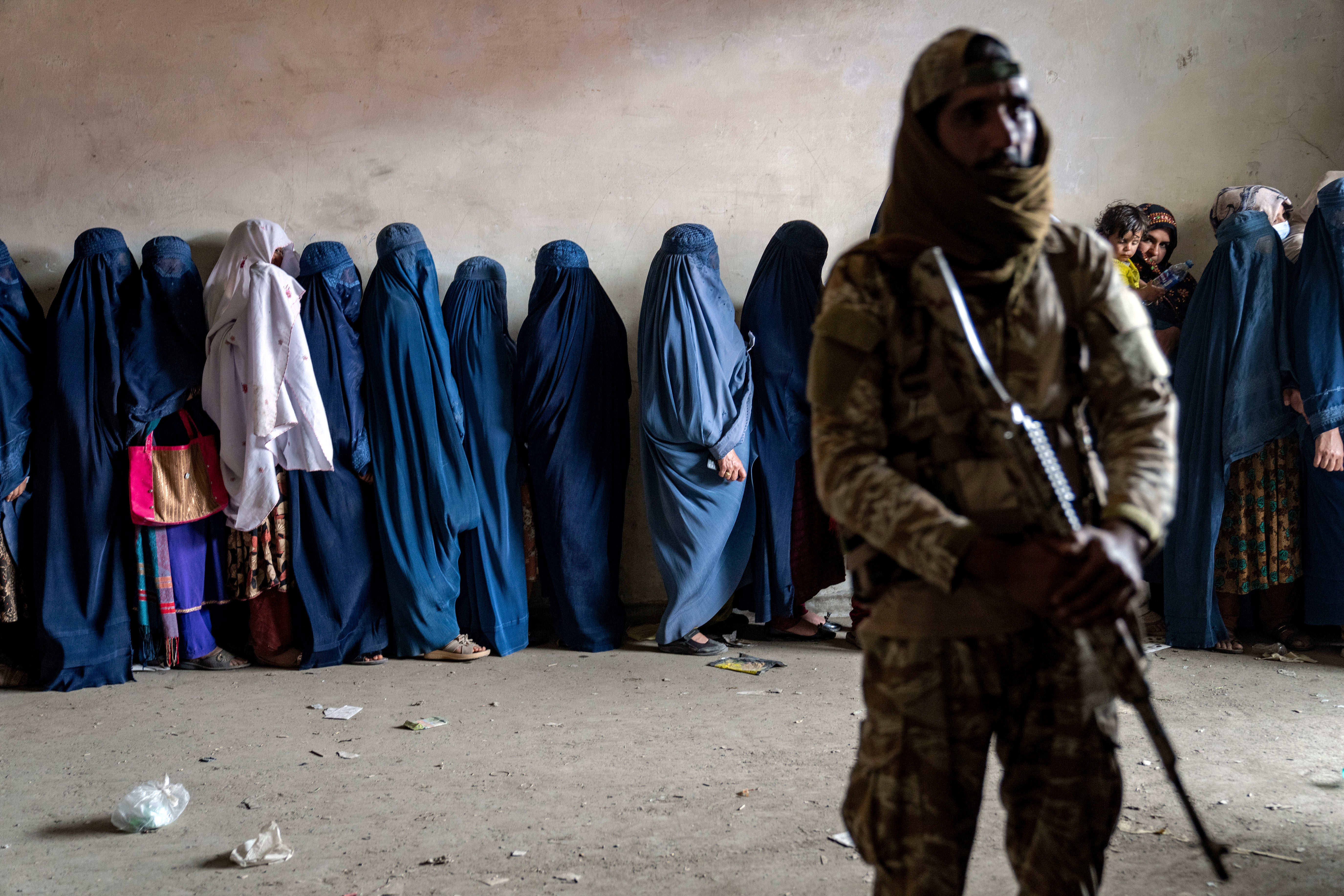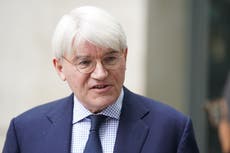Like it or not, the UK needs to be on the ground again in Afghanistan
Former ambassador to Afghanistan Nicholas Kay argues ‘thick-skinned’ diplomacy is needed to prevent state collapse and chaos, even while holding the Taliban to account and enforcing existing sanctions

Afghans and their friends still feel the shock of the Taliban victory in August 2021. Twenty years of dreams were lost overnight. A barrage of emotions followed: denial, anger, confusion and – for some – the beginning of a search for ways to move forward.
For over 40 years I have worked intermittently on Afghanistan, including as the UK ambassador to the country between 2017 and 2019. I know the harm inflicted by outsiders – its neighbours, the Soviet Union, Nato and the West have all made significant mistakes.
While it has suffered from foreign interference in the past, there is no question Afghan people need our help now. There are three things we should do to help Afghans prepare for the future.
The UK should place diplomats back in the country. This is neither recognition nor an endorsement of the Taliban. It will instead be an attempt to advance our interests and to support Afghan people more effectively.
The EU already has a small and low-level diplomatic and development office in Kabul. We and others have done it before in countries where we have severe differences with the ruling authorities. Each situation is different, but the UK recognises states not governments.
We had an embassy in Khartoum when its president was an indicted ICC war criminal. For decades the US had the largest diplomatic mission in Cuba as an “Interests Section” of the Swiss Embassy in Havana, while having no diplomatic relations with the country and while imposing swingeing legal sanctions against Cuba’s communist government.
There are different ways to have UK eyes, ears and mouths on the ground which stop far short of having full diplomatic relations. None is easy or risk-free. But there is great jeopardy – think 9/11, terrorism, drugs, migration and a combustible region – in leaving Afghanistan to its own devices or spending money blindly from afar.
There are currently few signs that London and Washington are ready to re-establish a presence on the ground. They are understandably wary of “creeping recognition” or signalling approval of Taliban conduct. Security concerns are also cited.
But our politicians need to be far-sighted and explain carefully why engaging on the ground is important if we want to help Afghans create a safety net for when change happens. In less than half a century Afghanistan has seen tumultuous political change on at least seven occasions. History suggests it will happen again.
In addition to keeping Afghans alive now through our humanitarian aid, we should fund work that will help the Afghan state survive traumatic change. This will need to be carefully targeted and closely monitored to avoid giving succour to the Taliban regime. Not easy and never likely to be perfect. But it is almost certainly impossible to be done effectively from a distance.
As friends of Afghanistan, we should be helping prepare Afghans to avoid state collapse and chaos. Our support on the ground should strengthen Afghan civil society, NGOs, human rights defenders, trade unions, academics and professional bodies.
The Taliban place restrictions on the people, but Afghans are resilient. Civil society may have been forced underground in some cases – for example, schools for girls – but it is not extinguished.
Secondly, alongside having a presence in Kabul, we must also enhance international efforts to hold the Taliban accountable and enforce existing sanctions. This is not vindictive. Nor should it be done in the forlorn hope of changing the Taliban approach to human rights and international terrorism. They will not change.
We should do it because it is the right thing to do. Likewise – as Gordon Brown also argued last week – the International Criminal Court should gather evidence and determine whether Taliban policies on women and girls break international law. I am not a lawyer, but every fibre of my body tells me these are indeed crimes against humanity.
Thirdly, we should help all Afghan political leaders and movements to be better ready for change. In the 1990s they were not, and civil war ensued. In the 2020s they need to work hard to achieve sufficient clarity and agreement on how a future Afghanistan will be governed by all Afghans for all Afghans.
Work is underway in conferences and backrooms around the world. Afghans may find it easy to unite in general support of human rights, democracy and elections, but it is harder to agree on constitutional issues, including the system of government. Eventually, this political dialogue will need to include the Taliban.
Pursuing these strategies will not be easy. Increasing our presence in Kabul, supporting civil society, boosting contacts with the opposition abroad and advocating for international justice to run its course will put us at odds with the Taliban. Skilful, patient, thick-skinned diplomacy will be necessary.
We should use both our hands to achieve our aims. With one hand we can work alongside the authorities of the day in Kabul and with the other we can prepare for a post-Taliban future in which Afghanistan finally breaks free from its cycle of traumatic change.
Sir Nicholas Kay KCMG served as the British ambassador to Afghanistan, Sudan and the Democratic Republic of the Congo, as well as the United Nations special representative for Somalia
Join our commenting forum
Join thought-provoking conversations, follow other Independent readers and see their replies
Comments


Bookmark popover
Removed from bookmarks